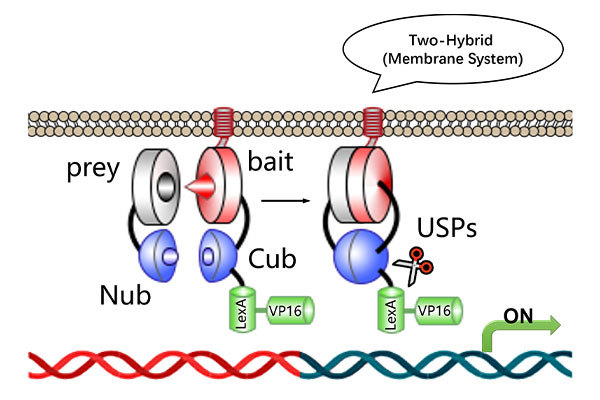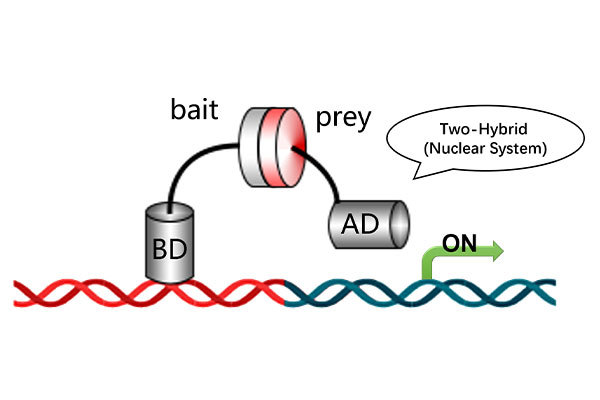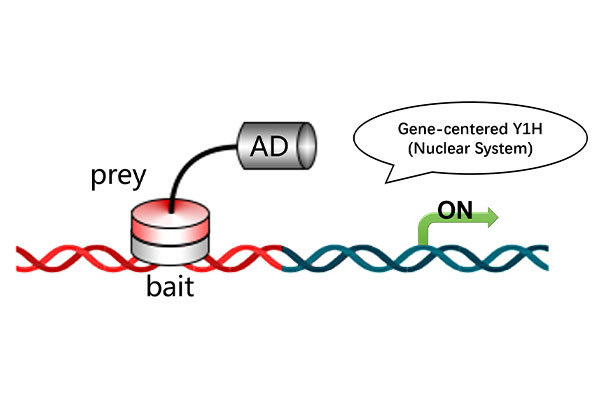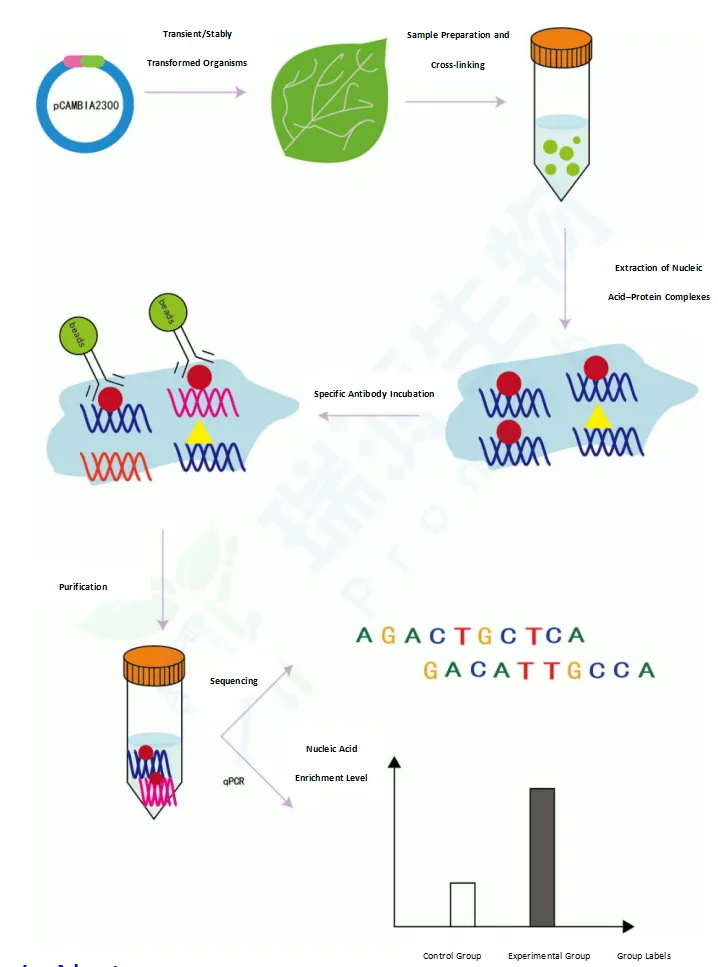Services
Providing Advanced Biological Technical Services for Researchers in Fundamental Science
AI Multimodal Protein-Compound Screening Service
AI-Powered Multimodal Protein-Small Molecule Docking and Virtual Screening Service
Service Description
AI is a revolutionary tool that has shown immense potential in the field of life sciences. In proteomics, machine learning and deep learning are extensively applied to study protein interactions, protein-nucleic acid interactions, and protein-small molecule docking. ProNet Biotech's digital library screening technology utilizes the three-dimensional structure of proteins to predict protein interactions, significantly enhancing the accuracy and efficiency of experimental validation. This AI-driven approach offers a substantial improvement over traditional methods in terms of speed, precision, and cost-effectiveness.
Key Applications
Protein-Small Molecule Compound Docking: Investigate drug mechanisms, enzyme substrate recognition, signal transduction, and other biological processes.
Protein-Protein Interaction Predictions: AI-based analysis of protein-protein interaction networks to uncover novel drug targets.
Virtual Screening and Compound Identification: Identify potential compounds that could modulate protein functions, aiding drug discovery.
Virtual Sample Submission Standards
· If a protein structure is available, please provide the 3D protein structure. If not, the amino acid sequence must be provided.
· All small molecules to be screened should be submitted in either 2D or 3D structural formats.
· Optional: Provide docking coordinates for the protein's active binding pocket (if available).
Protein-Small Molecule Compound Docking
Protein-small molecule interactions are critical in biological processes such as drug action, enzyme substrate recognition, and signal transduction. Virtual docking simulations enable the analysis of these interactions, using molecular dynamics to predict binding affinities and potential drug efficacy.
Service Process and Timeline
Service Content: ProNet Biotech provides comprehensive AI-based multimodal protein screening and compound screening services. Our services include data preparation, molecular docking simulations, ranking of docking models, and detailed reporting.
Screening Process:
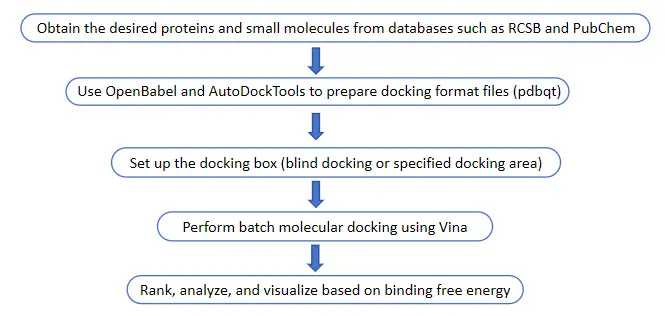
|
AI Multimodal Protein and Compound Screening Compound Technical Service |
||
|
Service Content |
Working days |
Deliverables |
|
1. Obtain the desired proteins and small molecules from databases such as RCSB and PubChem |
≤150,000 compounds: 7 working days; 150,000≤X<1,000,000 compounds: 20 working days; |
1.Analysis Report 2. Docking Images |
|
2. Use OpenBabel and AutoDockTools to prepare docking format files (pdbqt) |
||
|
3. Set up the docking box (blind docking or specified docking area) |
||
|
4. Perform batch molecular docking using Vina |
||
|
5. Ranking, analyzing, and plotting based on binding free energy |
||
|
6. Reporting |
||
Case Study: Cytochrome P450 14α-demethylase (PDB ID: 1EA1) Docking with FDA Small Molecules
A batch molecular docking experiment was performed between Cytochrome P450 14α-demethylase and 1,379 FDA small molecules from the Zinc database.
1. Obtain pdbqt Files for the Receptor and Ligand:
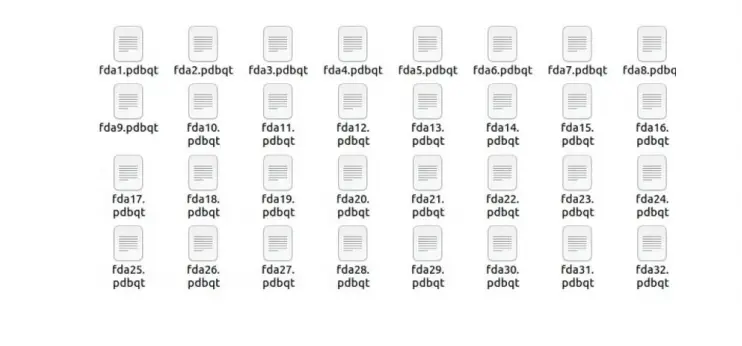
Figure 1. pdbqt files for the receptor and ligand.
2. Determine Docking Parameters:
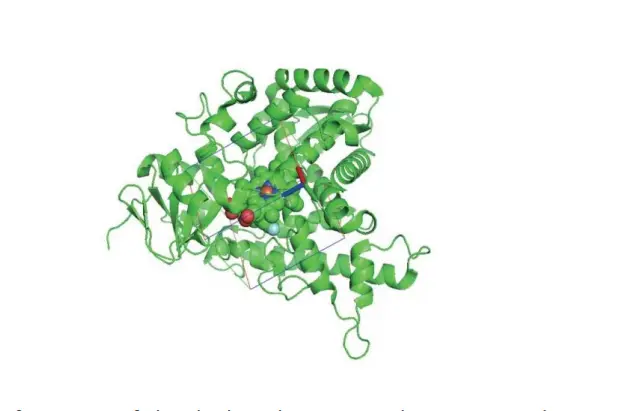
Figure 2. Confirmation of docking box size and center coordinates.
3. Perform Docking:
Use Vina batch docking script for molecular docking.
Each docking generates a log.txt file with affinity data for each model.
4. Ranking and Selection:
Rank docking models based on binding affinity.
Select the top 5 models for further analysis.
5. Create Visualizations:
Generate distant and close-up views of docking models.
Use Ligplot+ to create 2D interaction diagrams.
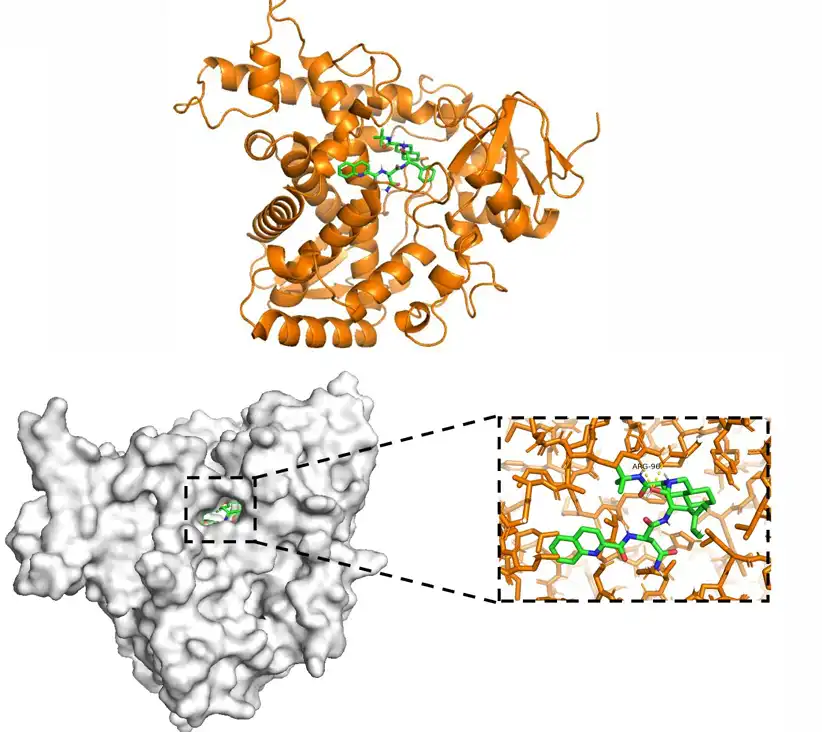
Figure 3. Distant and close-up views of docking models.
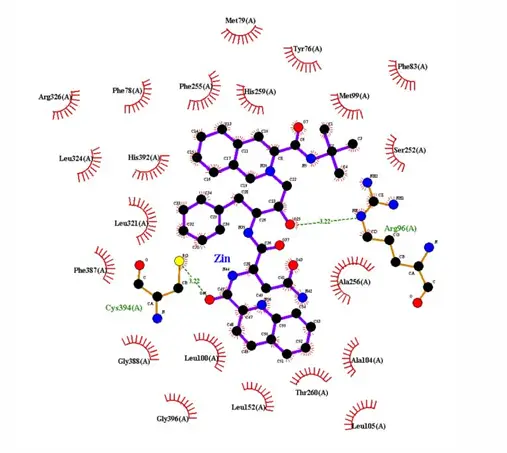
Figure 4. 2D interaction diagrams.
Service Benefits
High Throughput Screening: Efficiently screen large libraries of compounds using AI-based multimodal analysis.
Cost-Effective: AI reduces the need for extensive laboratory testing, saving both time and resources.
Accurate Predictions: AI-powered docking simulations enhance the reliability of protein-small molecule interaction predictions.
Faster Results: AI-driven processes significantly speed up the drug discovery process, from virtual screening to experimental validation.
Why Choose ProNet Biotech
ProNet Biotech stands at the forefront of AI-driven proteomics research. Our multimodal protein screening and compound docking services provide high-accuracy, cost-effective solutions for drug discovery and other biological research. Our team of experts leverages advanced AI algorithms and digital screening technologies to offer solutions tailored to your specific research needs.
Request a Consultation
To learn more about how our AI multimodal protein screening services can accelerate your research, please [Contact Us] below for a free consultation or more detailed information.
FAQs
What is AI multimodal protein screening? AI multimodal protein screening combines different types of data, such as protein structures, sequences, and small molecule properties, to predict protein interactions and docking behaviors. This process improves the accuracy and efficiency of drug discovery.
How accurate are the docking predictions? Our AI algorithms are trained on extensive datasets and continuously refined to ensure accurate predictions. Experimental validation further enhances the reliability of our results.
What data do I need to provide? You can submit protein structures (in 3D or amino acid sequence format), small molecule structures (2D or 3D), and optionally, docking coordinates for the protein's active pocket.
Disclaimer: All products and services provided by ProNet Biotech are for research purposes only and may not be used for diagnostic or therapeutic purposes.
Services Workflow

Online Consultation
01

Solution Matching
02

Service Contract
03

One-Stop-Services
04

Project Report
05
Related Products
Product Inquiry

Contact Us

Tel: +86 025-85205672

Email: info@pronetbio.com

Address: Building 3C, Nanjing Xianlin Zhigu,
Qixia District, Nanjing, Jiangsu, China, 210033

Need more info?
Let's connect!



